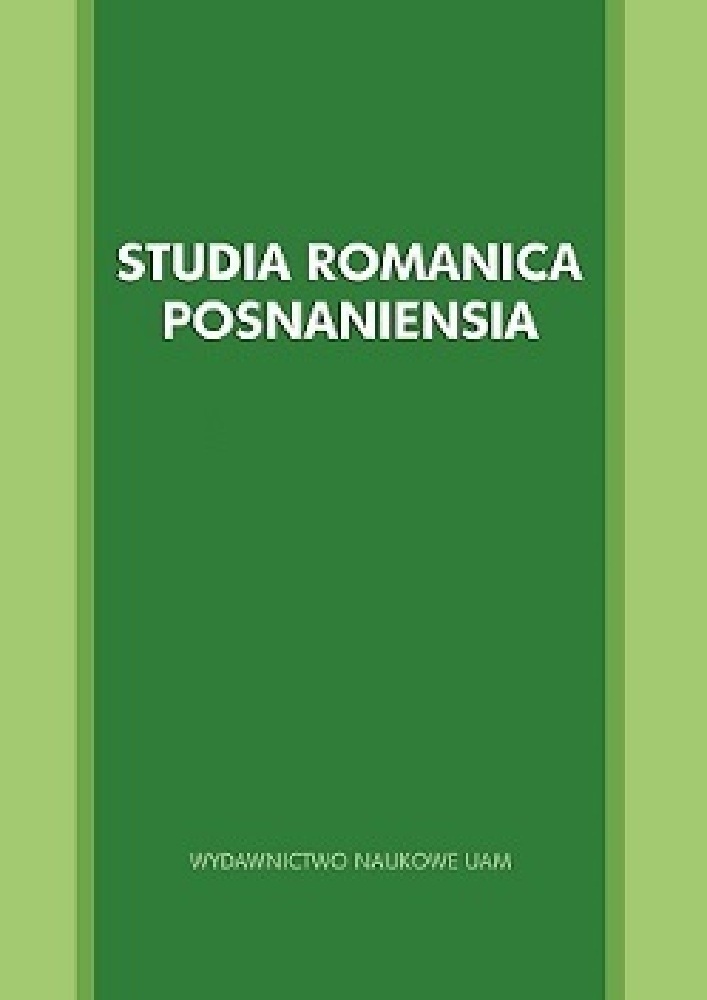Abstrakt
The aim of the present article is to focus on the potential of video games as a tool enabling the language teacher to transform the learning experience in the FL classroom. Apart from presenting various theoretical aspects of integrating computer-enhanced ludic techniques into language teaching, learner discourse excerpts will be analysed in order to determine the extent to which video games implementation can enhance classroom interaction. Our main aim will be to list various contexts in which narrative activities can manifest themselves during French as a foreign language lessons. As we will see, learners can be encouraged to create stories not only in reaction to cinematic sequences but also when attempting to reconstruct events which occurred earlier in the game or while recalling events from an earlier gaming session.
Bibliografia
Buysse, M. (2016). Dépendance sans intégration. La cosubordination comme mode de jonction propositionnelle et sa pertinence en acquisition du français L2. In F. Neveu, G. Bergounioux, M.-H. Côté, J.-M. Fournier, L. Hriba, & S. Prévost (Eds.), Congrès Mondial de Linguistique Française – CMLF 2016 (SHS Web of Conferences ; vol. 27). EDP Sciences-Web of conferences. DOI : https://doi.org/10.1051/shsconf/20162710003.
Dörnyei, Z., & Scott, M.L. (1997). Communication Strategies in a Second Language. Definitions and Taxonomies. Language Learning, 47 (1), 173-210. DOI : https://doi.org/10.1111/0023-8333.51997005.
Gee, J.P. (2008). What video games have to teach us about learning and literacy. Basingstoke : Palgrave Macmillan.
Johnson, S. (2005). Everything bad is good for you. New York : Riverhead Books.
Kotuła, K. (2015). New technologies and classroom interaction. Computer-enhanced ludic techniques in language learning. In A. Turula, B. Mikołajewska, & D. Stanulewicz (Eds.), Insights into Technology Enhanced Language Pedagogy (pp. 79-90). Frankfurt am Main : Peter Lang. DOI : https://doi.org/10.3726/978-3-653-04995-4.
Kotuła, K. (2016). Le rôle de l’enseignant d’une langue étrangère dans un environnement numérique. Des mondes virtuels aux jeux vidéo. Romanica Cracoviensia, 16 (2), 97-107. DOI : https://doi.org/10.4467/20843917RC.16.009.5930.
Mawer, K., & Stanley, G. (2011). Digital play: computer games and language aims. Surrey : Delta Publishing.
Paprocka-Piotrowska, U. (2003). Temporalité et narration. Développement des moyens de donner l’information temporelle dans le discours narratif chez des apprenants polonophones débutant français. Lublin : Towarzystwo Naukowe Katolickiego Uniwersytetu Lubelskiego.
Paprocka-Piotrowska, U. (2013). Construction du récit dans la communication en langue étrangère. Lublin : Wydawnictwo Werset.
Prensky, M. (2006). Don’t Bother Me Mom – I’m Learning! Saint Paul, Minnesota : Paragon House.
Reinders, H. (Ed.) (2012). Digital Games in Language Learning and Teaching. Palgrave Macmillan. DOI : https://doi.org/10.1057/9781137005267.
Reinhardt, J., & Sykes, J.M. (Eds.) (2014). Game-informed L2 Teaching and Learning [Special issue]. Language Learning & Technology, 18 (2). Retrieved from http://www.lltjournal.org/collection/col_10125_35926.
Tettegah, S., McCreery, M., & Blumberg, F. (Eds.) (2015). Psychological Perspectives on Digital Games and Learning [Special issue]. Educational Psychologist, 50 (4). Retrieved from https://www.tandfonline.com/toc/hedp20/50/4?nav=tocList.
Thomas, M. (2012). Contextualizing Digital Game-Based Language Learning. Transformational Paradigm Shift or Business as Usual? In H. Reinders (Ed.), Digital Games in Language Learning and Teaching (pp. 11-31). New York : Palgrave Macmillan. DOI : https://doi.org/10.1057/9781137005267_2.
Licencja
- Autor oświadcza, że przysługują mu osobiste i majątkowe prawa autorskie do Utworu oraz że nie są one ograniczone w zakresie objętym niniejszą Umową, oraz że utwór jest dziełem oryginalnym i nie narusza majątkowych lub osobistych praw autorskich innych osób.
- Autor udziela Uniwersytetowi im. Adama Mickiewicza w Poznaniu niewyłącznej i nieodpłatnej licencji na korzystanie z Utworu bez ograniczeń terytorialnych i przez czas nieokreślony na następujących polach eksploatacji:
2.1. wytwarzanie określoną techniką egzemplarzy Utworu, w tym techniką drukarską, reprograficzną, zapisu magnetycznego oraz techniką cyfrową;
2.2. wprowadzanie do obrotu, użyczenie lub najem oryginału albo egzemplarzy Utworu;
2.3. publiczne wykonanie, wystawienie, wyświetlenie, odtworzenie oraz nadawanie i reemitowanie, a także publiczne udostępnianie Utworu w taki sposób, aby każdy mógł mieć do niego dostęp w miejscu i w czasie przez siebie wybranym;
2.4. włączenie Utworu w skład utworu zbiorowego;
2.5. wprowadzanie Utworu w postacie elektronicznej na platformy elektroniczne lub inne wprowadzanie Utworu w postaci elektronicznej do Internetu, Intranetu, Extranetu lub innej sieci;
2.6. rozpowszechnianie Utworu w postaci elektronicznej w Internecie, Intranecie, Extranetu lub innej sieci, w pracy zbiorowej jak również samodzielnie;
2.7. udostępnianie Utworu w wersji elektronicznej w taki sposób, by każdy mógł mieć do niego dostęp w miejscu i w czasie przez siebie wybranym, w szczególności za pośrednictwem Internetu, Intranetu, Extranetu lin innej sieci;
2.8. udostępnianie Utworu zgodnie z wzorcem licencji Attribution-NonCommercial-ShareAlike 4.0 International (CC BY-NC-SA 4.0) lub innej wersji językowej tej licencji lub którejkolwiek późniejszej wersji tej licencji, opublikowanej przez organizację Creative Commons. - Autor zezwala Uniwersytetowi im. Adama Mickiewicza w Poznaniu na:
3.1. nieodpłatne korzystanie i rozporządzanie prawami do opracowań Utworu i tymi opracowaniami.
3.2. wysyłanie metadanych Utworu oraz Utworu do komercyjnych i niekomercyjnych baz danych indeksujących czasopisma. - Autor upoważnia i zobowiązuje Uniwersytet im. Adama Mickiewicza w Poznaniu do udzielania osobom trzecim dalszych licencji (sublicencji) do Utworu oraz do innych materiałów, w tym utworów zależnych lub opracowań zawierających lub powstałych w oparciu o Utwór, przy czym postanowienia takich sublicencji będą tożsame z wzorcem licencji Attribution-NonCommercial-ShareAlike 4.0 International (CC BY-NC-SA 4.0) lub innej wersji językowej tej licencji lub którejkolwiek późniejszej wersji tej licencji, opublikowanej przez organizację Creative Commons Tym samym uprawnia wszystkich zainteresowanych do korzystania z utworu wyłącznie w celach niekomercyjnych pod następującymi warunkami:
4.1. uznanie autorstwa czyli obowiązek podania wraz z rozpowszechnionym utworem informacji, o autorstwie tytule, źródle (odnośniki do oryginalnego utworu, doi) oraz samej licencji;
4.2. na tych samych warunkach, wolno rozpowszechniać utwory zależne jedynie na licencji identycznej to tej, na jakiej udostępniono utwór oryginalny. - Uniwersytet im. Adama Mickiewicza w Poznaniu jest zobowiązany do:
5.1. udostępniania Utworu w taki sposób, aby każdy mógł mieć do niego dostęp w miejscu i w czasie przez siebie wybranym bez ograniczeń technicznych;
5.2. poprawnego informowania osób, którym Utwór będzie udostępniany o udzielonych im sublicencjach w sposób umożliwiający odbiorcom zapoznanie się z nimi.
Pozostałe postanowienia
- Uniwersytet im. Adama Mickiewicza w Poznaniu zachowuje prawo do czasopisma jako całości (układ, forma graficzna, tytuł, projekt okładki, logo itp.).
